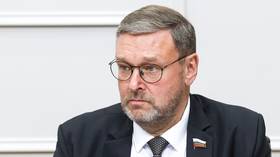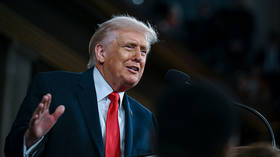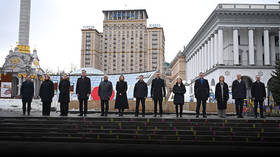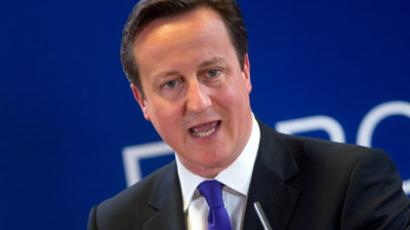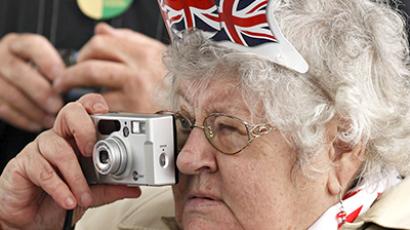No Cuts! Tens of thousands turnout for British anti-austerity protests (VIDEO)
Nurses, teachers and off duty policemen marched with anti-war activists, politicians and the unemployed in a massive protest against the Conservative led Government’s austerity measures, which they say are killing Britain.
Tens of thousands of people took to the streets in the demonstrations, which was led by a group of jobless young people. More than 250 coaches brought people to London to take part. There were similar protests in Belfast and Glasgow. Protesters blew whistles and held up flags and banners as they marched though central London. One homemade banner read, ‘Cameron has butchered Britain’. Other banners read ‘cut war not welfare’, and ‘need before greed’. RT’s correspondent in London, Sara Firth, who watched the march and spoke to some of the protesters, said that cuts to the NHS and the police force were the areas that people were most concerned about. “People have turned out here today from all walks of life. Families and all age groups are being affected by this,” She said. The cuts have severely affected the police force, the National Health Service (NHS) and the armed forces. One demonstrator told RT why he was marching, “We want our children to have a good education and good health care, this is what my grandmother who was a suffragette – [the women who fought for the female vote in Britain] – actually fought for and my father spent six years in north Africa fighting for a decent country and this government is going to destroy it.”
There was a strong trade union presence at all the three nationwide events. The head of the Trade Union’s Congress (TUC) Brendan Barber said that the message from the protesters is that austerity isn’t working. “The government doesn’t understand the pain that their cuts and their economic program are having in communities up and down the country. And the government needs to swallow its pride and go for plan B, because Plan A just isn’t working.” Dave Prentis, the leader of Unison, Britain’s biggest public sector trade union, told RT. Barber and other union leaders have called for a general strike and further protests to hammer home their message to the government. Other groups involved in the protest included the Stop the War Coalition and the Campaign for Nuclear Disarmament, which has slammed the government for what it says are “disastrous” implications for public services financing by committing tens of billions of pounds to a new nuclear weapons system.In a rally in Hyde Park, which took place after the march, Labour leader Ed Milliband took to the stage saying that if elected his party would “stand for all the young people in the country who want to work in Britain but cannot find it today.”
An embarrassing week
The march will provide further discomfort for David Cameron’s conservative led coalition, which is reeling from a week of negative headlines. On Friday Andrew Mitchel, the Chief Whip or party enforcer, resigned after a row in which he’s accused of calling the police ‘plebs’ – a class-laden insult often used by Britain’s upper classes to insult common working people. In a second embarrassment, the chancellor, George Osborne, was caught sitting in a first class train carriage with only a standard class ticket. This was ammunition for Tory critics who accuse them of being the party of privilege. The unions were quick to pounce on his actions: “The Chancellor eventually paid for his ticket, but the rest of us are paying the price for his disastrous policies.” But Sajid Javid, a Conservative Treasury minister, said the government must stick to its guns and said that figures out last week showing a fall in unemployment and inflation showed that its economic policies were working. While Mark Littlewood, the director general of the Institute of Economic Affairs, which describes itself as an independent free market think tank, said the government must not listen to militant union leaders and that relatively the cuts Britain has seen are tiny. But for many of those voicing their discontent on the streets of London and for people in the UK who have lost their jobs because of austerity, prudent economic principles appear to be just background noise.




